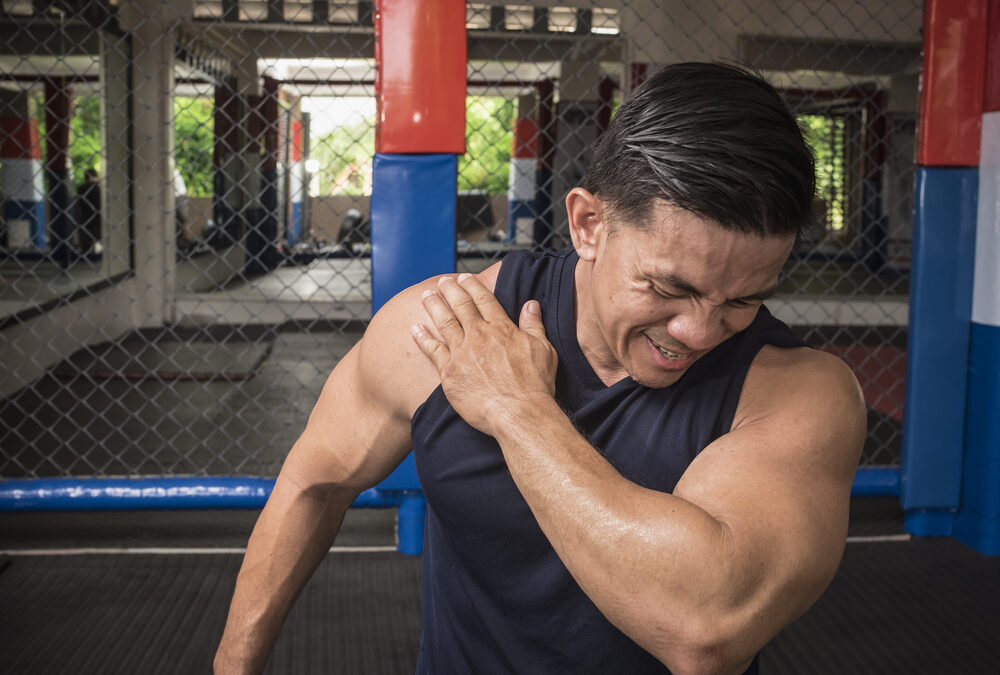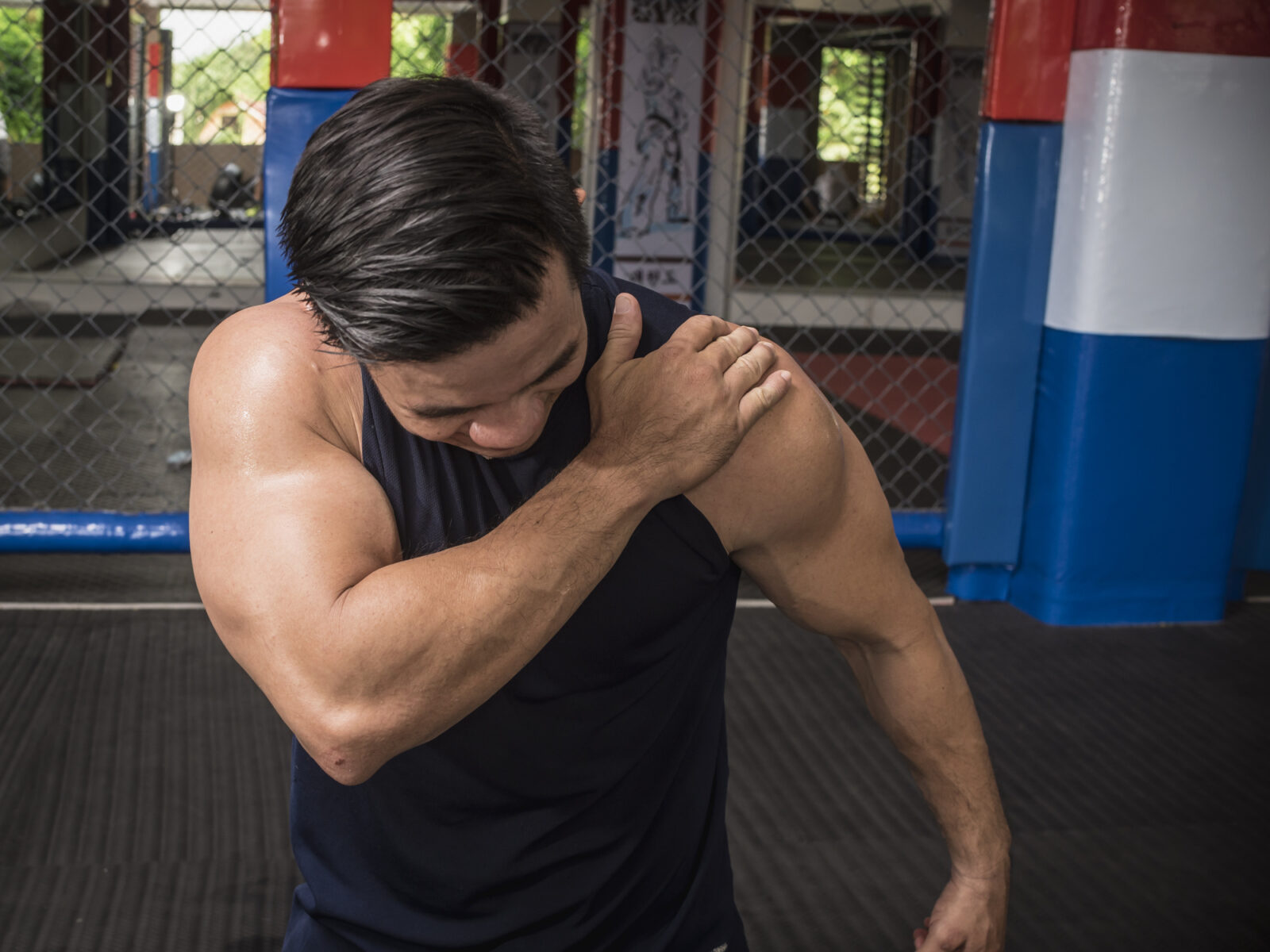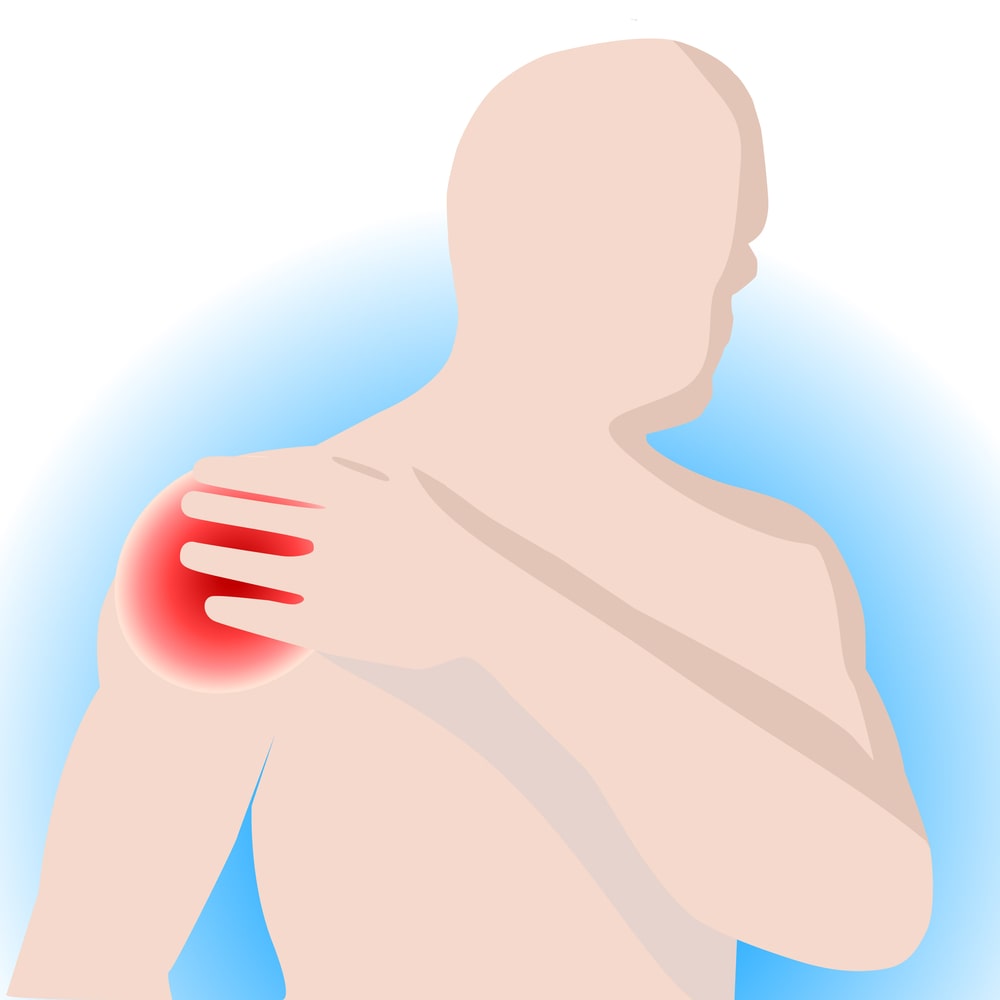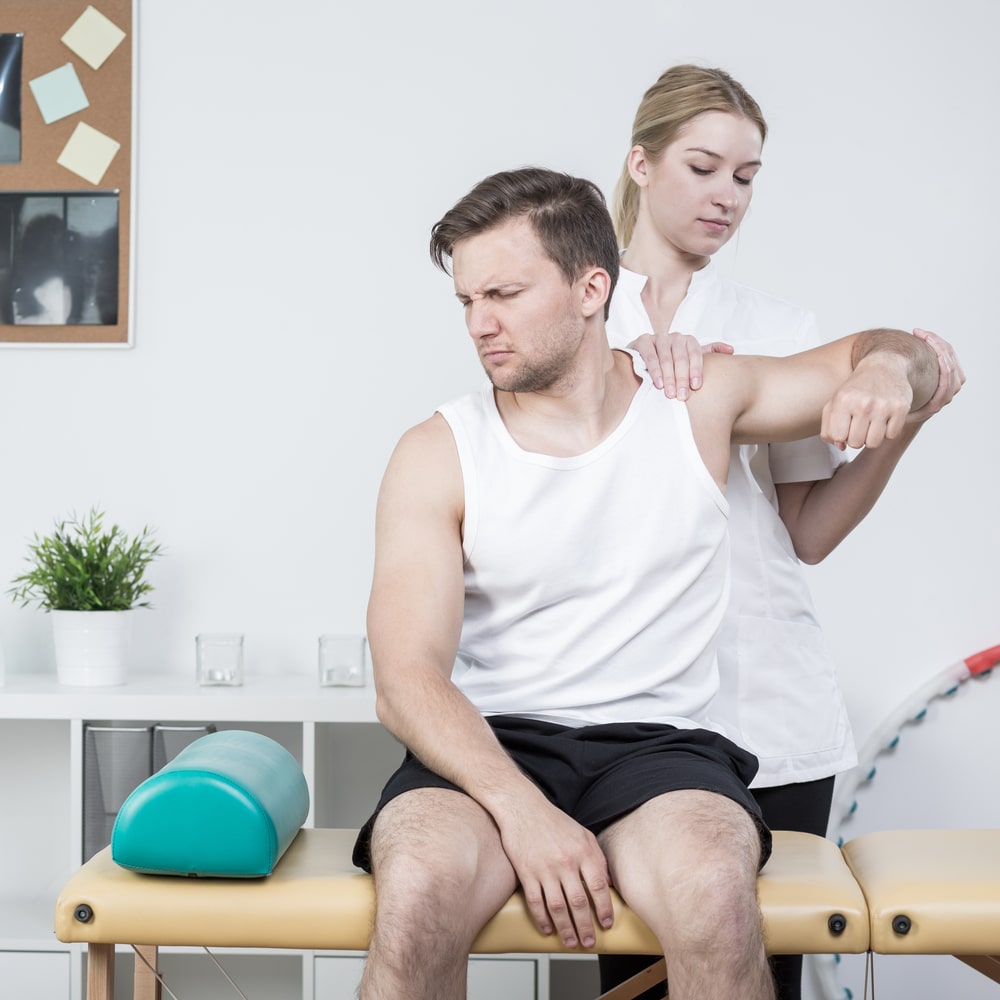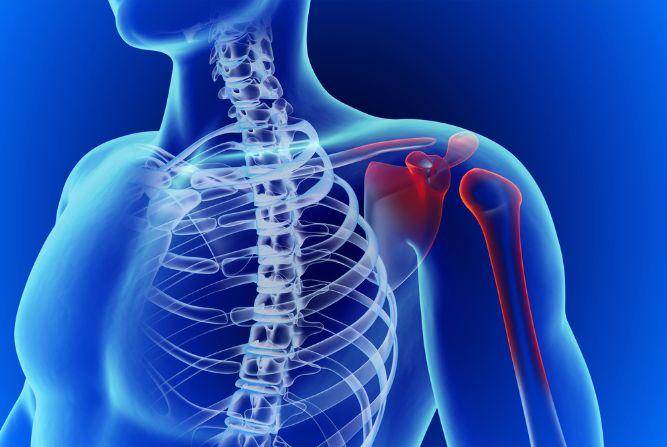It’s a bit tricky, as research shows that over 50% of people with rotator cuff tears do not feel any symptoms. However, symptoms may appear over time if the tear gets worse. When symptoms are present, they typically present as shoulder pain, weakness, and popping/crackling. Lifting your arm may up and down could trigger pain or cause existing pain to worsen. Interestingly enough, it’s not common for patients to experience overly severe pain, although it is possible, particularly if the tear is large and was caused by a fall or other trauma. Injuries to the rotator cuff usually change the way the ball and socket work and move together. Here is a photo showing the anatomy of the shoulder, and a common area where the tendon could be torn.
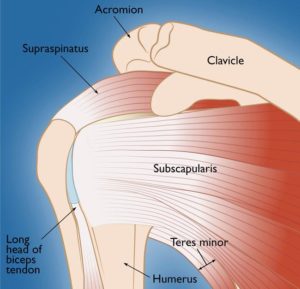
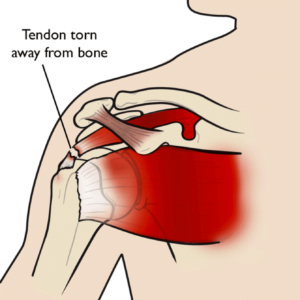
I think I might have a torn rotator cuff. What should I do?
If you think you have a rotator cuff tear, book an appointment with an Orthopaedic Specialist who specializes in diagnosing and treating shoulder injuries.
A true specialist can identify the underlying cause of your pain. Generally, the cause is a cuff tear or another problem, such as a SLAP tear, tendonitis, arthritis, or bursitis .A sports medicine specialist can provide comprehensive care for rotator cuff injuries, from diagnosis to rehabilitation.
Solving these types of injuries starts with an accurate diagnosis and treatment plan, and most likely an imaging study will be needed.
The first imaging tests performed are usually X-rays. X-rays do not show the soft tissues of your shoulder (like the rotator cuff). Many doctors will want to see these imaging results to make sure you don’t have other reasons for your shoulder pain, such as arthritis, a bone spur, etc.
The second imaging test commonly performed is Magnetic resonance imaging (MRI) or ultrasound. An MRI can better show soft tissues, like the rotator cuff tendons, than an X-ray. A tear in the rotator cuff tear is usually visible in an MRI of the shoulder, as well as where the tear is located within the tendon and the size of the tear. An MRI can also give your specialist a better idea of how old or new a tear is because it can show the quality of the rotator cuff muscles.
If you’re experiencing symptoms of a torn rotator cuff, don’t suffer in silence. Contact our orthopedic surgeons in Wayne, NJ today to get the relief you need.
